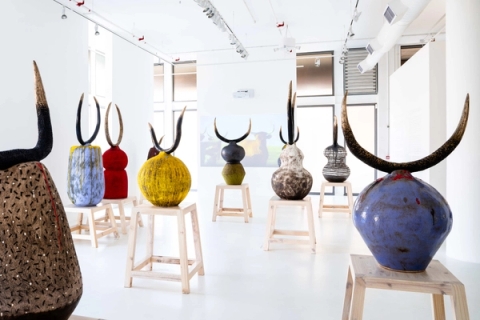My Enquiry (0)
No artwork has been selected.
Please choose an artwork to enquire.
Enquiry Submitted
Thank you for your enquiry and interest in our artists’ work. A member of the gallery team will respond shortly.
000%
25 March - 1 July 2021
Zizipho Poswa pays homage to the spiritual offering at the heart of the ancient African custom of lobola, or bride-wealth – the cow – in this group of sculptural totems. Emblazoned with a pair of striking bronze horns, each ceramic form in iLobola designates a specific role-player or step culminating in the couple’s union.
Southern Guild presents iLobola, ceramic artist Zizipho Poswa‘s debut solo exhibition – including 12 iconic sculptures made from hand-coiled clay combined, for the first time, with cast bronze.
In the traditional practice of lobola, a groom’s family gifts a certain number of cows to his bride’s family after a process of negotiation between the two parties. Surviving modernity, the customary offering of cattle is now often replaced with a monetary payment – leading the practice to be viewed as more commercial in nature. But this obscures the primary purpose of lobola, says Poswa – that of ukwakhiwa kobuhlobo: the building of relations between the two families.
“During the negotiation process, the families really get to know each other. They talk about what bonds the couple together and even identify potential pitfalls to the marriage. When the couple faces problems down the line, they have this safety net to turn to. I think it’s a really beautiful structure that brings stability,” she says.
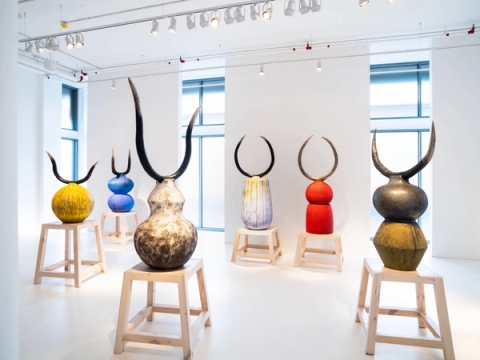
Lobola also raises questions that it disempowers and objectifies women, but Poswa unapologetically overrides this perception, choosing to celebrate both strength and sensuality in her work. The 12 sculptures in iLobola reach up to two metres high – her largest sculptural undertaking yet – each emblazoned with a pair of massive bronze horns that pierce the air. Their voluminous bases take the form of huge conical teardrops, undulating gourds or giant barrels that invite anthropomorphic associations.
Like some of Poswa’s earlier works, this series walks the boundary wall of figuration and abstraction, employing her intuitive vocabulary of shape, colour and texture. Her practice revolves around Black female identity in present-day South Africa, paying homage to the sacrifices of mothers, positing the importance of sisterhood, and celebrating intact cultural spaces – such as the traditional African hair salon – where Western influence has remained at bay.
Artists
Works
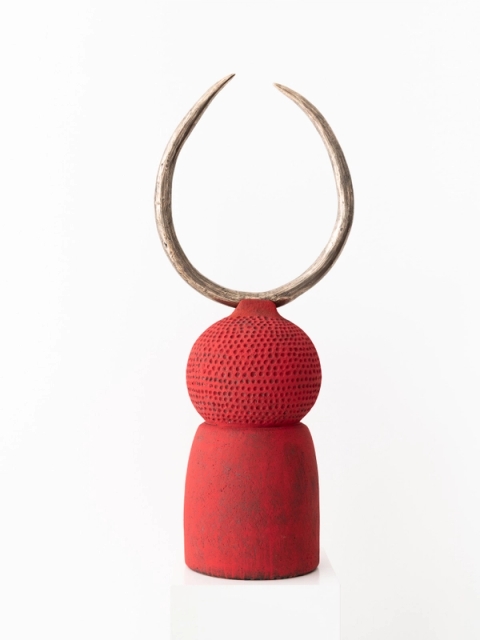
Zizipho Poswa
uMakoti (Bride), 2021Glazed earthenware, bronze
72.9 x 29.5 x 20.5 in. | 185 x 75 x 52 cm
Sold
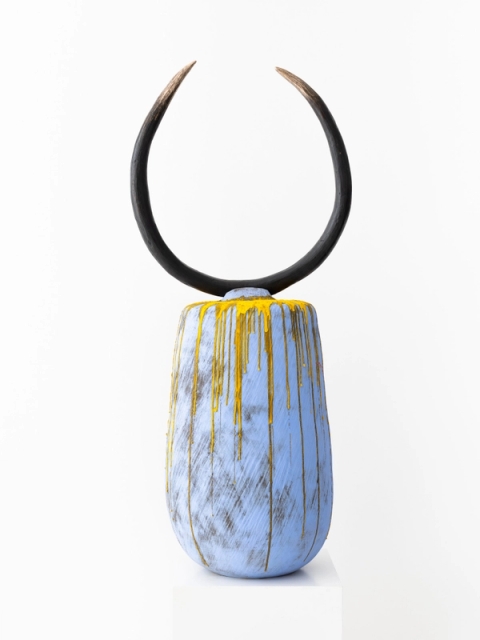
Zizipho Poswa
uMyeni (Groom), 2021Glazed stoneware, bronze
74 x 31.88 x 26.38 in. | 188 x 81 x 67 cm
Sold
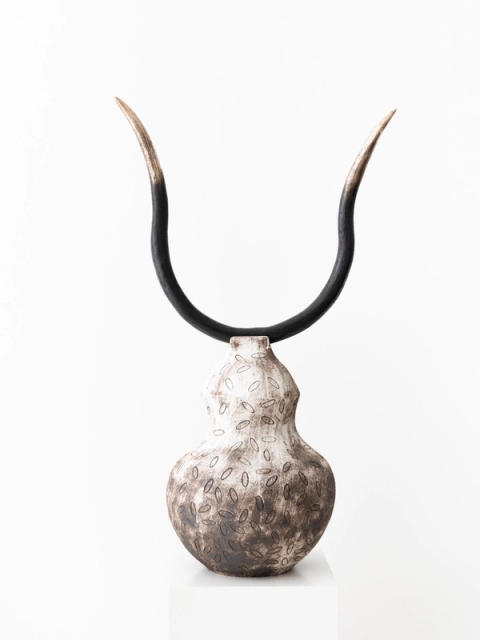
Zizipho Poswa
uTatazala (Father-in-law), 2021Glazed earthenware, bronze
70.9 x 41.4 x 25.6 in. | 180 x 105 x 65 cm
Sold
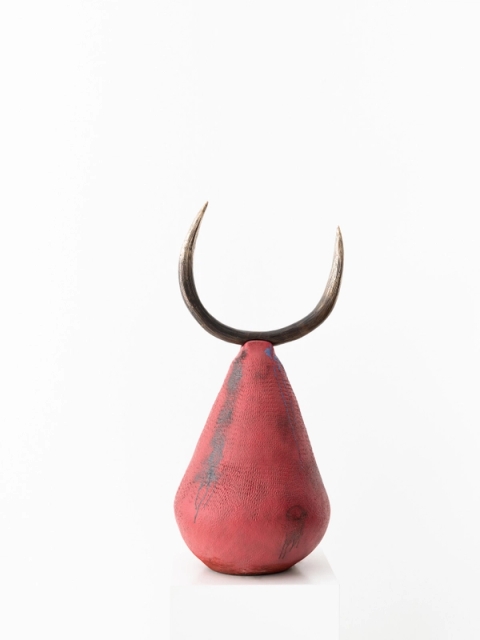
Zizipho Poswa
uNozakuzaku I (Negotiator I), 2021Glazed stoneware, bronze
55.1 x 27.5 x 24.4 in. | 140 x 70 x 62 cm
Sold
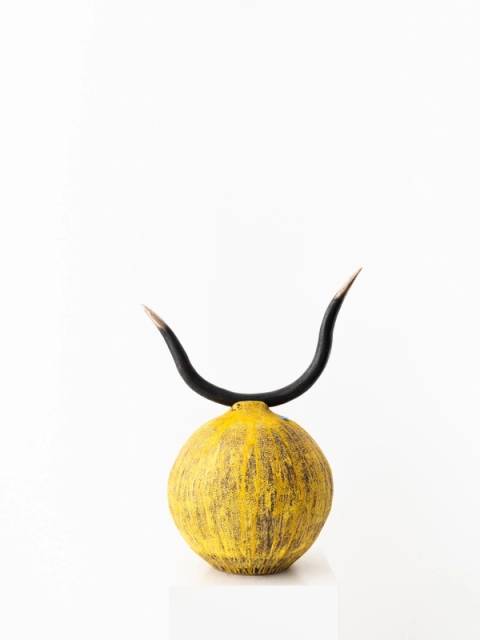
Zizipho Poswa
uNozakuzaku II (Negotiator II), 2021Glazed stoneware, bronze
44.9 x 33.5 x 25.3 in. | 114 x 85 x 64 cm
Sold
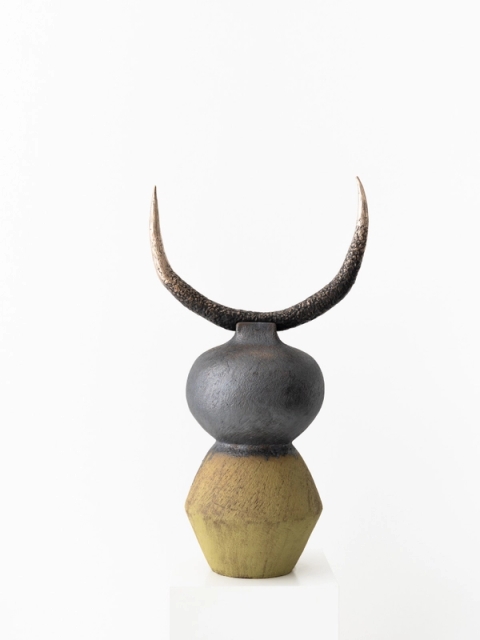
Zizipho Poswa
uNozakuzaku III (Negotiator), 2021Glazed earthenware, bronze
57.9 x 32.3 x 21.6 in. | 147 x 82 x 55 cm
Sold
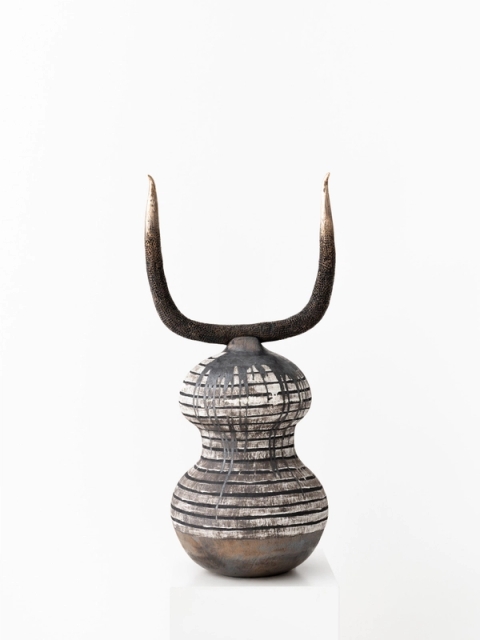
Zizipho Poswa
uBuso beNtombi (Gift for the Bride's Mother), 2021Glazed stoneware, bronze
59 x 28.4 x 23.6 in. | 150 x 72 x 60 cm
Sold
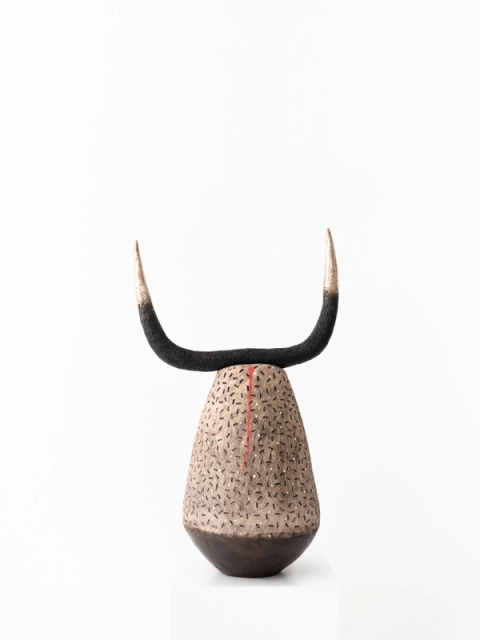
Zizipho Poswa
iSazimzi (Introductory Gift), 2021Glazed stoneware, bronze
51.1 x 29.5 x 20.1 in. | 130 x 75 x 51 cm
Sold
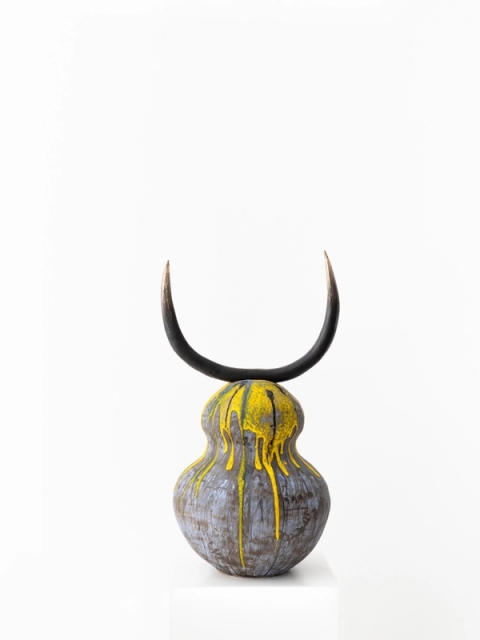
Zizipho Poswa
iKhazi (Agreed Number of Cows), 2021Glazed stoneware, bronze
47.6 x 26.4 x 23.6 in. | 121 x 67 x 60 cm
Sold
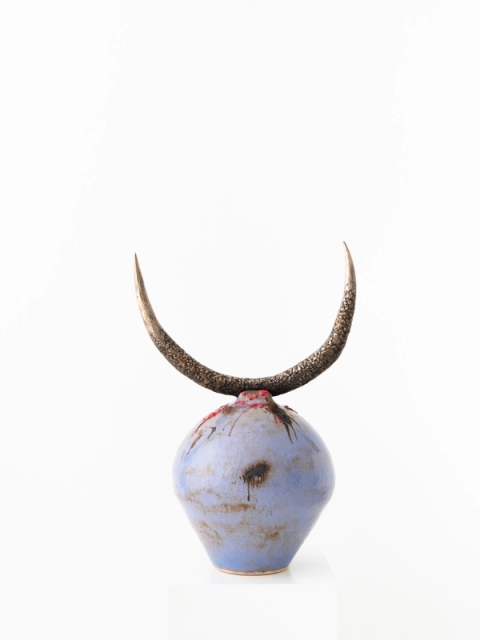
Zizipho Poswa
uDuli (Traditional Wedding Ceremony), 2021Glazed stoneware, bronze
48 x 32.6 x 25.3 in. | 122 x 83 x 64 cm
Sold
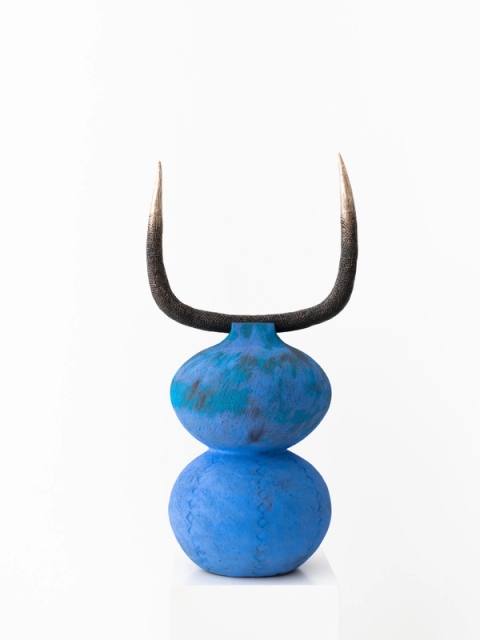
Zizipho Poswa
iMvulamlomo (Brandy offering), 2021Glazed stoneware, bronze
62.3 x 31.5 x 25.3 in. | 158 x 80 x 64 cm
Sold
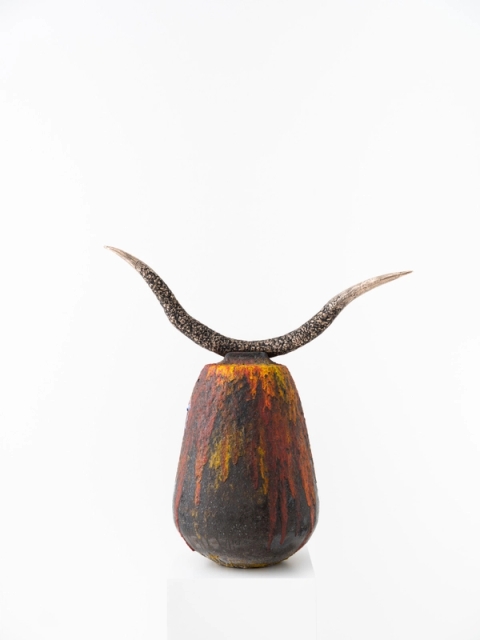
Zizipho Poswa
uMamazala (Mother-in-law), 2021Glazed stoneware, bronze
49.3 x 51.1 x 24.4 in. | 125 x 130 x 62 cm
Sold
